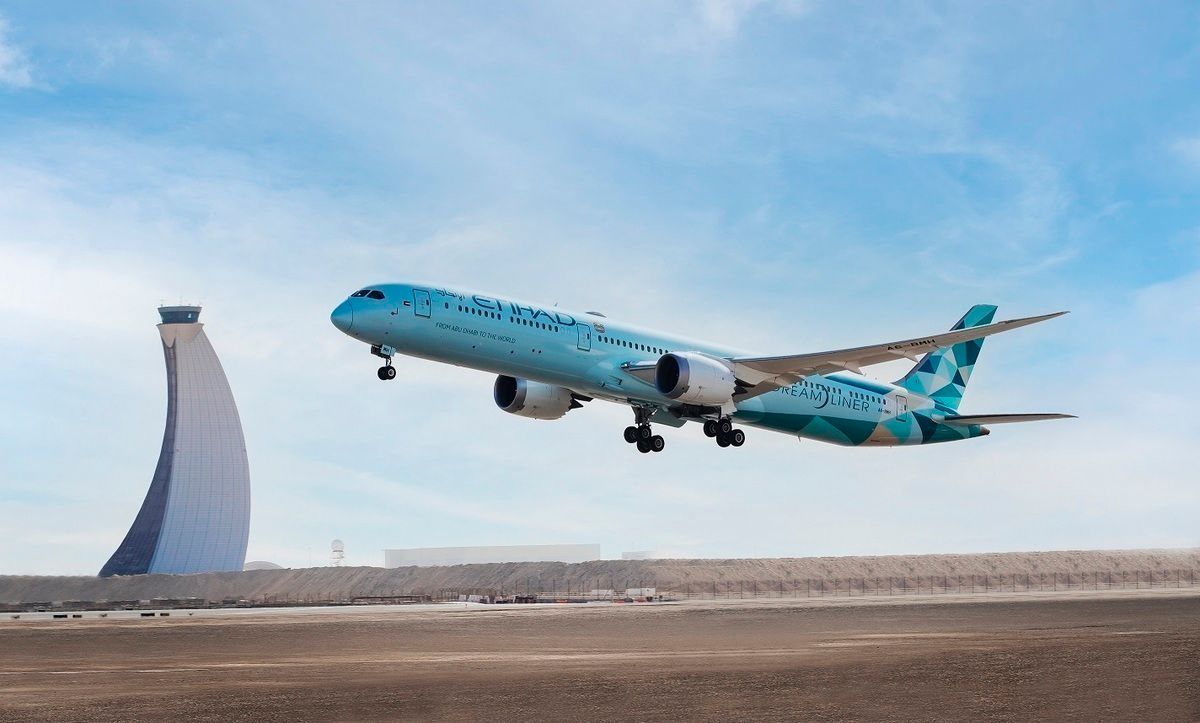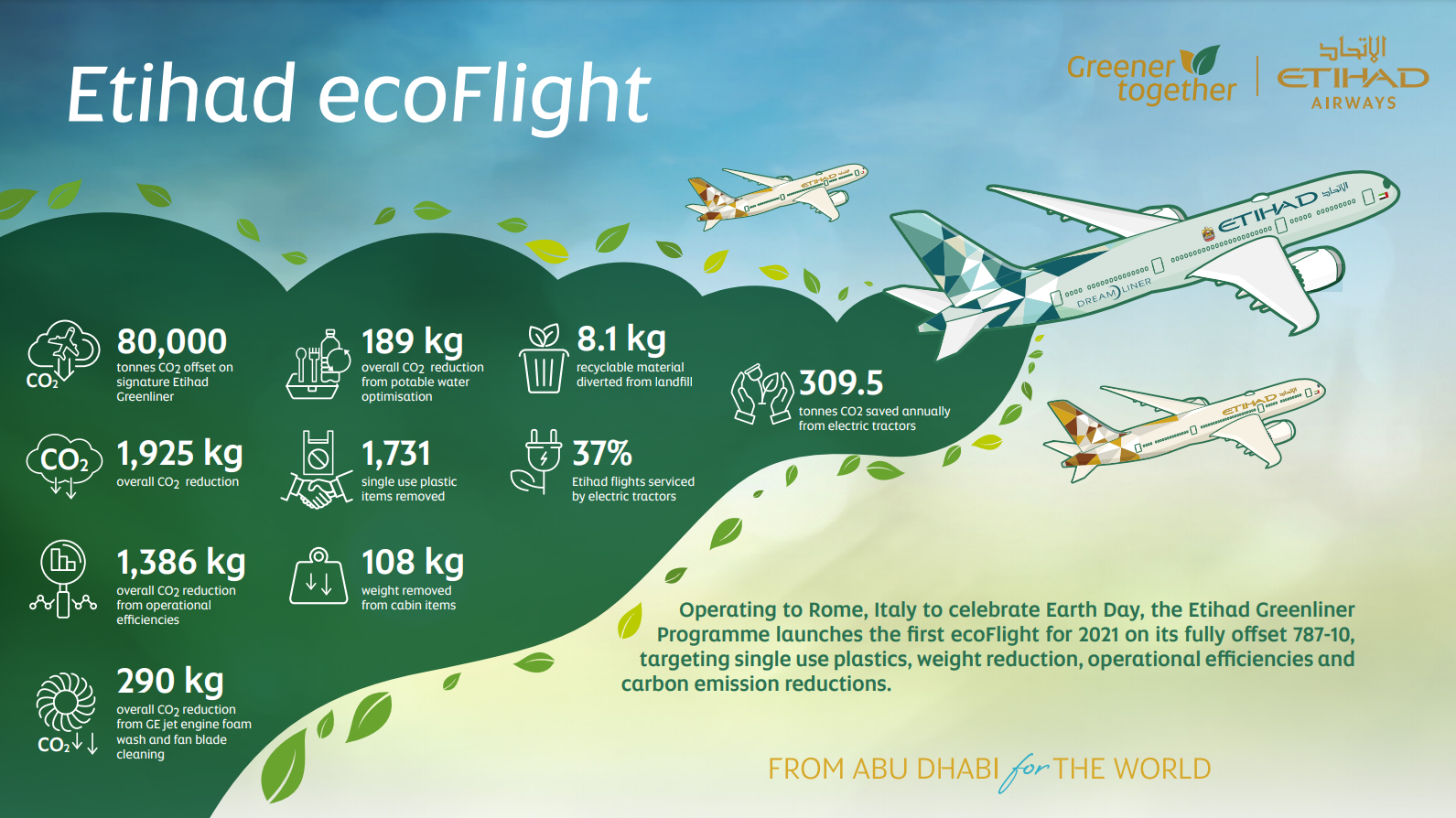Etihad Airways recently celebrated Earth Day with a special "eco flight" utilizing one of its Boeing 787 aircraft. The flight was the airline's first eco flight of 2021 and its fourth overall as part of its "Greenliner" sustainability drive. The flight saw emissions reduced by almost two tonnes.
The sustainability of the aviation industry is currently one of the top priorities for airlines and the aviation industry as a whole. Many airlines are investing in sustainable aviation fuels, with British Airways' CEO warning that true emissions-free solutions to flying, such as hydrogen aircraft, are still a good 30 years away from realization.
Stay informed: Sign up for our daily and weekly aviation news digests.
What is an eco flight?
At this point, you may be wondering what an eco flight is. In terms of Etihad's Greenliner sustainability initiative, the program sees select flights being operated in a certain way to cut its environmental impact. The initiative sees many issues being tackled, such as emissions, waste, and noise.
Onboard this flight, one fundamental pillar was reducing the amount of single-use plastic used onboard the flight. In total, Etihad removed 1,731 pieces of single-use plastic from service on this flight. This could include a range of items such as cutlery, drinks cups, and amenity kits.
The airline also emphasized reducing the weight onboard aircraft. While some reductions may seem pretty trivial, it really is a case of every little helps. Simple Flying previously calculated that removing the inflight magazine from a single British Airways Airbus A350 would equate to a weight saving of 72,500kg across a year, assuming two flights a day.
In the case of Etihad's flight, 108kgs of weight was removed from the cabin, directly equating to a CO2 reduction of around 60kg.
Finally, the airline also generated a CO2 saving of 189kg from optimizing the amount of water carried onboard the flight. Intelligent water optimization could save 800 tonnes of fuel being used by the airline each year.
Cutting CO2 emissions
While 60kgs of CO2 emissions were directly cut due to weight savings, in total, 1.9 tonnes of CO2 emissions were saved with last week's flight. The aircraft's flight characteristics were altered to take advantage of an optimized climb and continuous descent.
As a matter of policy, Etihad tries to secure an optimized flight path wherever possible, not just on its eco flights. However, on this flight, according to the airline, 1.3 tonnes of CO2 savings were a direct result of flight path optimization.
The flight used Boeing's "Probabilistic Flight Planning tool" to find the best route considering many variables. If used on every flight, Etihad believes that this would save the airline 2,000 tonnes of CO2 a year.
Commenting on the flight, Tony Douglas, CEO of Etihad, said,
"Flight optimisation is one of the first places we should be looking to for fuel and CO2 savings as an industry. It’s an elegant, simple solution for massive, incremental savings that would fundamentally change the industry and put us on the path to a sustainable future."
Etihad is hoping that it will be able to operate many more eco flights through the year to explore further how its environmental impact can be cut.
What do you make of Etihad's latest eco flight? Let us know what you think and why in the comments below!



